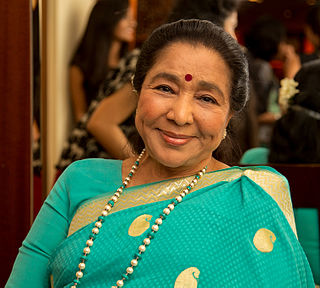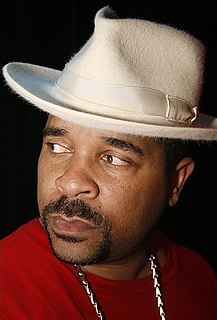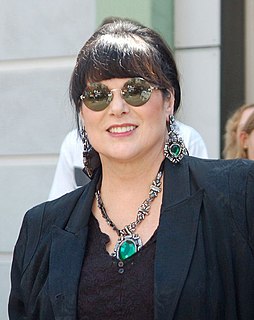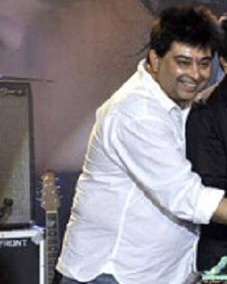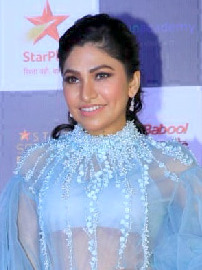A Quote by Asha Bhosle
I performed six concerts all over the U.S.S.R. during the time of Gorbachev. The entire audience was Russian. There were no Indians. Period. The audience turned out in large numbers and gave standing ovations to all my songs. They knew each song. That was an amazing experience.
Related Quotes
An audience will let you know if a song communicates. If you see them kind of falling asleep during the song, or if they clap at the end of a song, then they're telling you something about the song. But you can have a good song that doesn't communicate. Perhaps that isn't a song that you can sing to people; perhaps that's a song that you sing to yourself. And some songs are maybe for a small audience, and some songs are for a wide audience. But the audience will let you know pretty quickly.
I don't even know why, but my entire career is contemporary films. Entire career! There's no period movies - there's one - but there's no period movies, no special effects movies. I just do character studies and so, some of them are gonna bump into each other, but I love the challenge, with a good script. I love the challenge of playing not a very pleasant or attractive character that seduces an audience or wins an audience over by the end.
Audience interest is directly proportionate to the presenter's preparation. You better spend time and energy on any presentations where the stakes are high. If you are trying to close a large sale or speak at a conference to an audience of potential clients, you better be ON your game. An audience can tell how much energy you spent on your presentation, which is a reflection of how much you valued their time. If they gave you an hour of their time, you need to make it worth it to them by treating their time as a valuable asset by making the content valuable to them.
Songs give you incredible opportunity to convey a tremendous amount in a relatively short period of time. The first thing that John Powell, our composer, says is, "Is the song engaging you to tap your toe?" If you're not tapping your toe, it doesn't matter what you're doing in the song, it's not going to work. But, if you can get the audience to be engaged by the song, then it gives you the opportunity to accomplish so much, in a very concise way.
There are times I'm completely uncomfortable with my works being performed publicly, and I haven't attended certain concerts because the prospect is akin to having a diary read on stage. But there are also situations - whether with an audience of one, or many - where the concert experience can be deeply special, and those experiences are often unpredictable, and wonderful when they occur.
